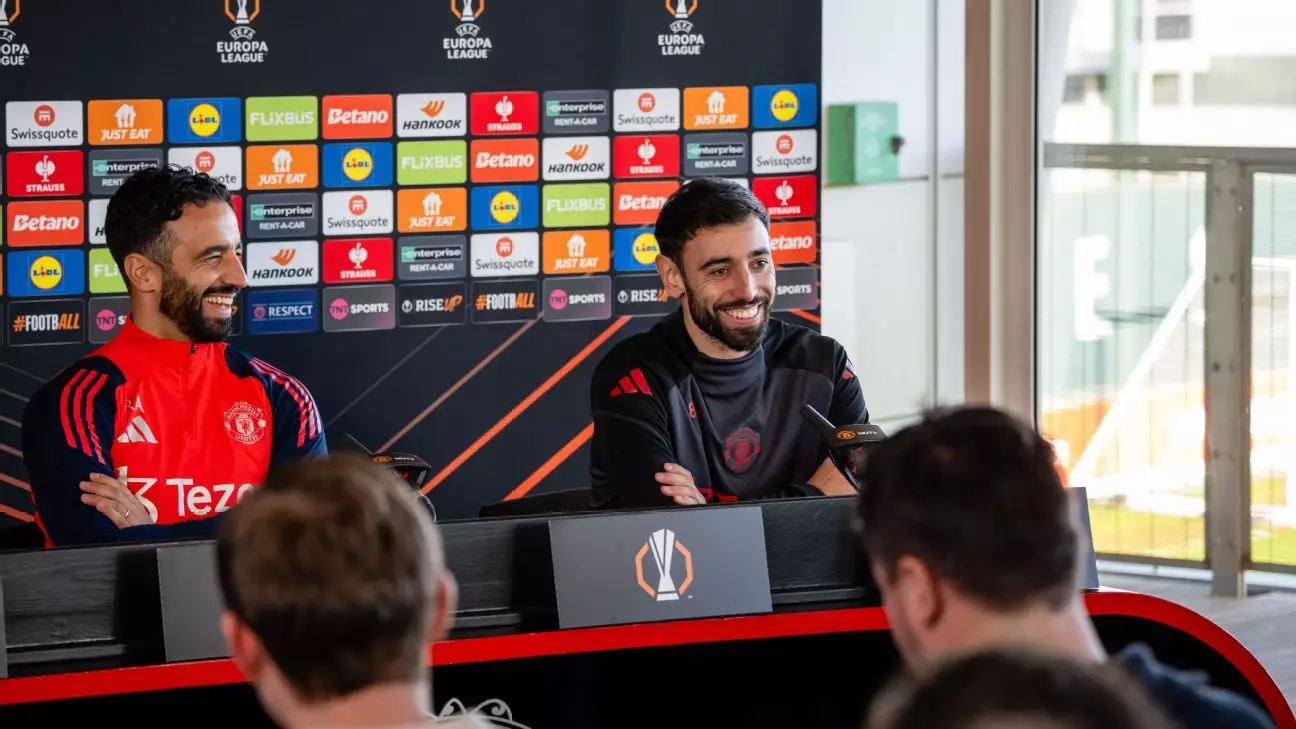Bruno Fernandes, the influential captain of Manchester United, recently addressed the pressing task of acclimating to the new tactical philosophy introduced by coach Ruben Amorim. Following United’s tepid performance in a 1-1 draw with Ipswich during Amorim’s inaugural match, the captain conveyed the reality that changes on the field will come with challenges. This scenario underscores a pivotal moment in the team’s journey as they strive to understand and implement Amorim’s system, which he indicated may lead to initial struggles.
Fernandes recognizes that his role extends beyond merely playing; it involves acting as a conduit between the coaching staff and the players on the field. He expressed his determination to be an effective communicator, especially during matches where the chaos of the game can muffle the manager’s instructions. “I try to absorb everything from every position,” he stated, emphasizing the importance of having a comprehensive understanding of the tactics in order to foster effective communication and quick adjustments during gameplay.
Taking Responsibility as a Team
In a critical moment for Manchester United, following the dismissal of former manager Erik ten Hag, Fernandes echoed the sentiment of shared accountability among the players. He acknowledged the intrinsic link between managerial changes and team performance, stating, “if you change a manager mid-season, it is because things are not going as you want.” The underlying message is clear: the players must also reflect on their performances and contributions to the team’s struggles.
Fernandes’ candid acknowledgment of the team’s collective responsibility is crucial. It highlights an essential aspect of professional sports—the need for unity and open dialogues when navigating difficult times. Emphasizing that every department shares the burden of responsibility, he pointed out that it is easier for clubs to part ways with a manager than it is to dismiss numerous players, which, in turn, encourages the athletes to critically evaluate their roles in driving the team’s performance.
Aiming for Improvement in Europa League
As Manchester United gears up to face Bodo/Glimt in the Europa League, the focus remains on revitalizing their season under Amorim’s guidance. This match is particularly significant as it offers an opportunity for the team to demonstrate their adaptability to new strategies and philosophies. Fernandes’ proactive approach as a leader will be tested as he strives to expedite the learning curve not only for himself but also for his teammates.
The upcoming fixtures will serve as a litmus test for Amorim’s tactics and Fernandes’ ability to unify the squad. As the captain, his insights and guidance are pivotal in navigating the complexities that accompany a managerial transition. If he successfully bridges the gap between the coaching staff’s expectations and the players’ execution, it may lay the groundwork for a more cohesive and resilient unit moving forward.
Bruno Fernandes stands at a crossroads, tasked with guiding Manchester United through a transformative phase. The synergy of leadership, collective responsibility, and tactical understanding will be essential components in the team’s quest to return to form and achieve success under new management.

